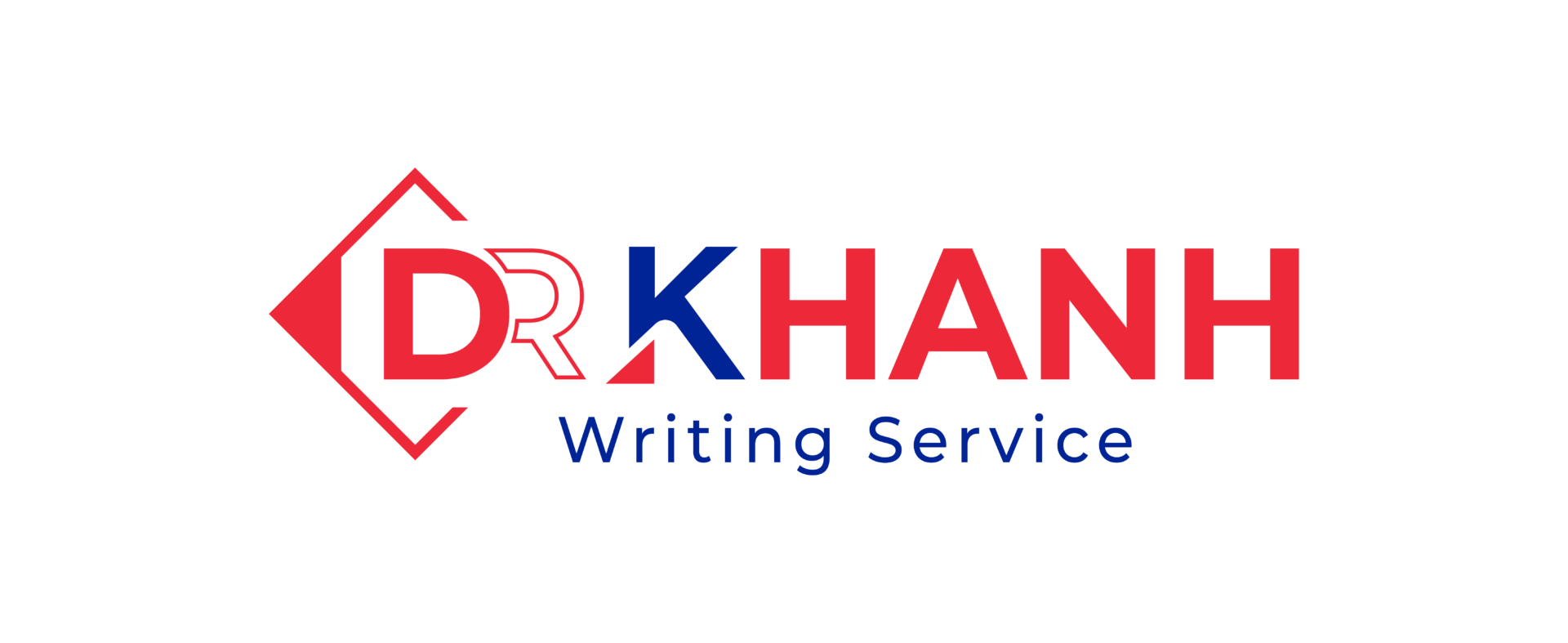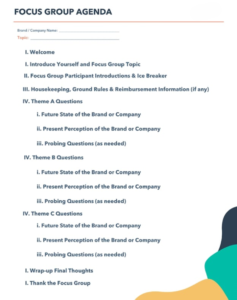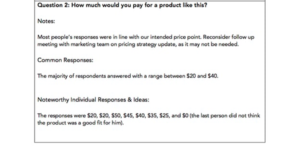How to Run a Focus Group: A Comprehensive Academic Guide for Students
Introduction: Understanding the Research Imperative
In the realm of empirical investigation and product development, understanding stakeholder perceptions becomes paramount to research validity. When developing novel products, services, or academic initiatives, gathering systematic feedback from your target demographic through structured qualitative methods proves essential for meaningful outcomes.
What is a focus group?
A focus group is a small group of people, typically representative of your target market, with whom you share ideas and ask questions about your product, service, or business. The individuals who make up the focus group should be a mix of current customers and people who’ve never made a purchase but might in the future. The ideal outcome is a stronger understanding of how the subject of the focus group would be received by a wider audience, and what changes (if any) should be made before the formal roll-out.
Now you may be asking, is information gathered from focus groups really important? And is it a good strategy to gather information?
Theoretical Framework: Defining Focus Groups
A focus group represents a methodologically rigorous approach to qualitative data collection, comprising a carefully selected cohort of participants representative of your target demographic. This research instrument combines current stakeholders and potential future participants, facilitating dynamic dialogue to generate rich, multifaceted data about perceptions, preferences, and potential improvements.
Focus Group Strategy
The methodological significance of focus groups emerges through their capacity to:
- Generate precise needs assessments from stakeholder populations
- Provide interpretive frameworks for quantitative findings
- Illuminate underlying patterns in consumer behavior
- Facilitate deep understanding of stakeholder perspectives
Methodological Implementation: The Focus Group Agenda
- Participant Welcome Protocol
Establish initial rapport through structured welcome procedures:
- Introduce research team members
- Outline session objectives
- Create comfortable dialogue environment
- Participant Introduction Framework
Facilitate structured introductions to:
- Establish baseline communication patterns
- Build participant comfort levels
- Gather preliminary demographic data
- Ground Rules Establishment
Delineate clear operational parameters:
- Address potential controversial topics
- Establish confidentiality protocols
- Clarify compensation mechanisms
- Question Implementation Strategy
Deploy questions with methodological rigor:
- Structure by thematic categories
- Maintain chronological coherence
- Address current-future state dynamics
- Conclusion Protocol
Implement structured closure:
- Synthesize key discussion points
- Address residual questions
- Facilitate final participant insights
Systematic Implementation: 11 Core Methodological Steps
- Topic Selection Protocol
Narrow your investigative focus to ensure methodological precision. Contemporary research practice indicates the necessity of limiting scope to generate meaningful data within temporal constraints.
- Question Development Framework
Download Professional Focus Group Template
Develop strategically structured questions:
- Product marketing inquiries
- Packaging design evaluation
- Price point analysis
- Competitive positioning assessment
- Focus Group Questionnaire Development
Structure your research instrument to capture:
- Common response patterns
- Unique participant insights
- Overall thematic trends
- Notable outlier perspectives
- Documentation Protocol
Implement systematic data capture:
- Appoint dedicated research recorder
- Separate facilitation and documentation roles
- Establish standardized recording frameworks
- Participant Recruitment Methodology
Academic/Professional Outreach
- Engage existing stakeholder databases
- Implement systematic communication protocols
Social Media Implementation
- Deploy demographically targeted campaigns
- Utilize platform-specific strategies
Location-Based Methodologies
- Implement geographically targeted campaigns
- Utilize public transit advertising systems
- Deploy local publication strategies
Incentive Structures
- Develop appropriate compensation frameworks
- Consider alternative reward mechanisms
6-8. Session Implementation Protocol
- Obtain informed consent
- Facilitate introductions
- Deploy structured questions
- Ensure equitable participation
- Participation Management
Implement strategies for balanced dialogue:
- Monitor individual contribution patterns
- Facilitate equal representation
- Deploy targeted engagement techniques
- Temporal Management
Maintain strict adherence to established timeframes:
- Honor stated duration commitments
- Manage discussion progression
- Respect participant scheduling constraints
- Analysis Framework
Systematically process gathered data:
- Identify common response patterns
- Extract actionable insights
- Develop implementation strategies
Case Study Analysis: Post-Election Focus Group Implementation
The Georgetown University Institute of Politics and Public Service study exemplifies methodological rigor through:
- Precise topic delimitation
- Structured participant engagement
- Systematic data collection
- Focused thematic maintenance
Focus Group Example
This recent focus group study follows most of the guidelines we’ve recommended and derived useful information for real-world application.
Post-Election Focus Group
Georgetown University Institute of Politics and Public Service conducted a focus group with first-time voters after the 2020 election. It could have been very easy for this focus group to get off track and into political affiliations; However, you’ll notice in this example that the researcher had a topic in mind — the first-time-voter experience — and didn’t deviate from that topic. She asked probing questions and sought out a variety of perspectives from the group.
Watch this focus group to get a better understanding of how to start these conversations and keep them going to get the insights you need.
The information can now be studied for political research thus helping guide future campaigns for first-time voters.
Methodological Conclusion
The systematic implementation of focus group research requires careful attention to methodological rigor while maintaining practical efficacy. Through adherence to these structured protocols, researchers can gather rich qualitative data while ensuring research validity and reliability.






